Blog
Words. Wisdom. Winners.
How to have more time?
More time, more than time management, is a function of choosing to waste time and choosing to not waste time.
When you schedule your time to waste, you get more focused in your time to be more productive.
When you schedule your time to be focused, you distance the things that distract you.
Rinse and repeat, for everything you do.
Time management, is simply an art of choosing balance.
Every single day. Even when (especially when) it is easy to lose that balance.
Talk to yourself
We are often told to talk to ourselves, as it makes things clearer in our head.
A thing to consider in this conversation, is: What if we listen as well?
To your own thoughts.
To your feelings.
To your emotions when you are not feeling good.
To your emotions when you are feeling awesome.
To your emotions when you are feeling easy.
Talking is hard. Listening is harder. To yourself, even harder.
However, the most meaningful conversations happen only when we listen.
Whom do I look up to?
Not a person in particular, but the traits they embody.
And by that means, I look up to a lot of people.
Mr. Ratan Tata. Captain Gopinath. So many others – who are my mentors and don’t even know they are my mentors.
But they are traits.
More than anything else, I look up to books.
They are the best friend we didn’t think we need.
Only till the time they arrive and we realise we did need them.
I look up to books. And never look down on myself after looking up to them.
Best friends
As we get older, our number of best friends tend to decline. But the existing friendships continue to nurture really well.
Beyond those very few friends, here are some best friends everyone must have:
- Books
- The ability to sit with your own thoughts
- Journal to note down your thoughts, ideas, feelings, emotions.
Beyond people, becoming your own best friend is indeed one of the most beautiful things you will do to yourself.
3 tips for every stock market crash
- Do not panic
- Do not take actions while panicking
- Take some time to understand why you are feeling these extreme emotions. And what you can do to mitigate them.
The rise in markets comes with equal certainty of falls. The goal is not to panic, the goal is to reach a place where you logically regulate your emotions so they don’t decide what you will feel.
The king (your mindset), when stepping down from the throne (while reacting to stock market crash), isn’t a king anymore.
Tomorrow
Our biggest problem is that we want everything tomorrow.
That success.
Those million followers.
That sculpted body.
Fourteen best friends.
Fame and fortune.
Even transformed parents!
Most good things in life take time. If it didn’t, imagine how much you and I must be “having”, without having the effort that took to get there.
The only tomorrow worth waiting for, is to make your actions 1% better each day.
Everything beyond that, is an endless chase for nothingness.
Changing our stance
The most successful, the happiest people I know of, are very comfortable (and welcoming) of change.
And when they don’t see change happening around themselves, they actively go out looking for it.
Changing the way you look at things.
Changing the way you do things.
Changing your own decision that you took so proudly, a few weeks back.
Changing your decision that you publicly announced to the world.
Changing your own self. Because you’ve found someone better: The Future You.
The ones who stay married to who they are, can never divorce who they were.
The only way to grow, is to let go. Mostly, of yourself.
Where to get so much content from?
I create ~150 pieces of content each week.
Week after week. With zero miss-out.
How do I do that?
Where do I get that much content from?
It’s simple.
From living my life.
From talking to all of you.
From learning from my mistakes.
From learning from the mistakes of others.
We all are filled with content all of the time. All of us.
It is the synthesis of what’s going on in the mind to bring that out into the world, that requires work.
Content is easy. Staying true to it no matter what, is what decides whether you are in it for the long term game or to wither easily.
Timeline
Timeline matters. And it doesn’t.
There is a timeline to put in the inputs. Your weekly schedule. Your actions that build you up.
That is the timeline that matters.
And then there is a timeline that most people put, to achieving things in life. To have a home. To get that big car. To get all the money quickly.
That is the timeline that is only an illusion. An imposed version of others’ beliefs. A hurry train you were made to ride on, without understanding we all are driving our own vehicles at our own pace.
Timeline matters. In the micro. And it doesn’t. In the macro.
How to know what the audience wants
We may have our own analysis.
Do what we think is the “next big thing.”
Set up huge infrastructure to make that happen.
However, the best way to figure out what the audience wants is: Ask them!
Look at the comments they are giving out genuine issues on.
Are they thinking in some direction?
Which need of theirs could we fulfill?
The time to ask the questions is after the audience has responded. Otherwise they are mere assumptions.
Subscribe to warikoo wanderings
